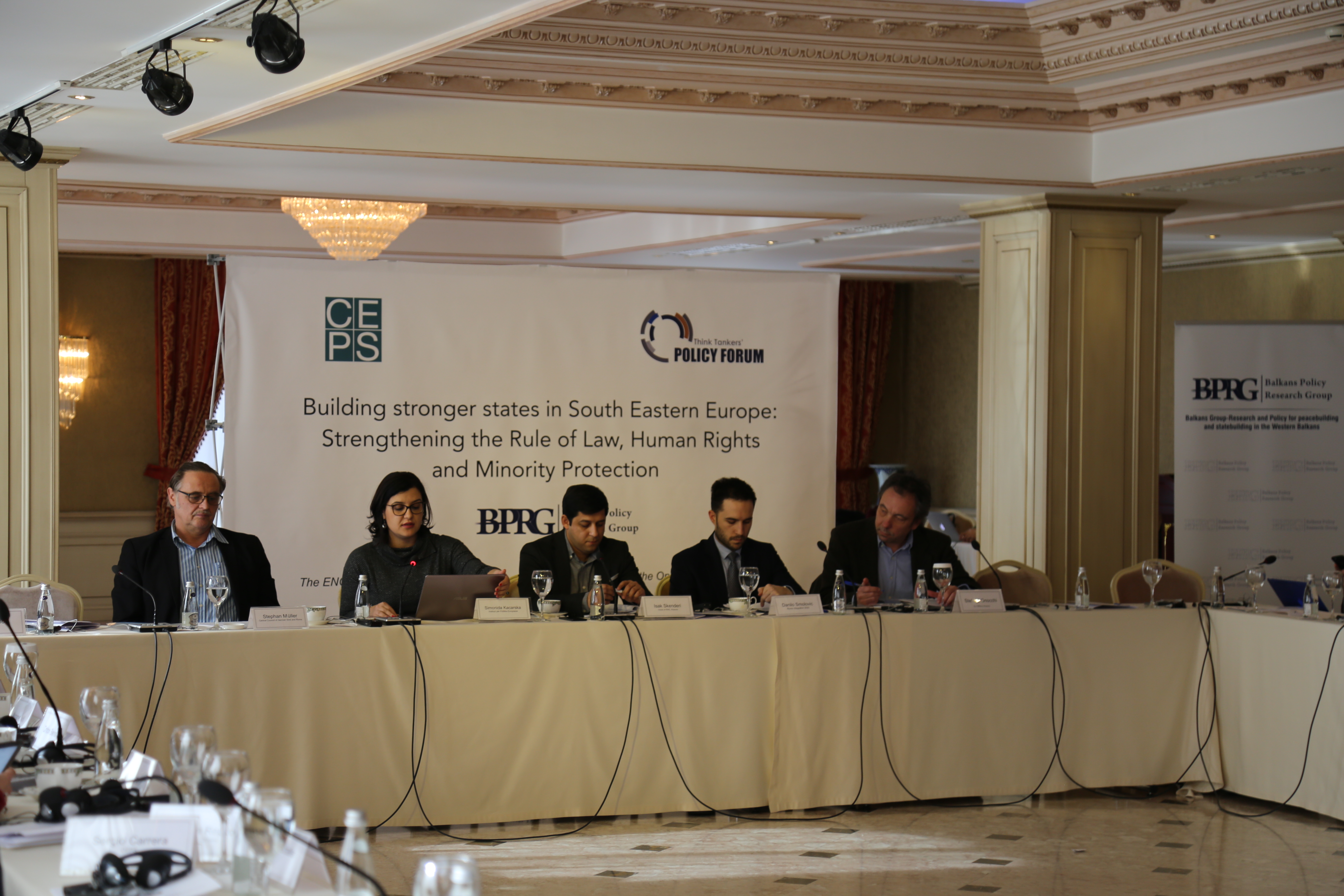Decent living and additional support for Roma whether staying or leaving
- 07 Feb 2019
- News

Conference "Building stronger societies in Eastern Europe: Strengthening the rule of law, human rights and minority protection" in Prishtina on 07 February 2019 (Photo: Balkans Policy Research Group)
The Regional Cooperation Council (RCC)’s Roma Integration Policy Expert Danilo Smolovic participated as a panellist at the ENGAGE international event “Building stronger states in the Western Balkans and Eastern Europe: Strengthening the Rule of Law, Human rights and Minority Protection”, organized by the Balkans Policy Research Group (BPRG), in Prishtina on 7 February.
Within the
session on the role of the European Union in Roma inclusion and migration,
organized with the goal of reflecting on the mid-term evaluation of the EU
framework for National Roma Integration Strategies (NRIS), European Commission
Communication on enlargement and relevant migration and asylum policies, role
of the EU institutions, member states and candidates and their impact on
building a coherent internal and external Roma inclusion strategy, Mr Smolovic underlined
the need to support Roma in their places of origin to integrate and have a decent
living. By ensuring so, Roma considerations to migrate would not by driven by necessity
and the need to escape emergency living conditions.
“Although we
are, together with the governments of the Western Balkans and Turkey region,
striving to increase effectiveness of the Roma integration policies, there are
still Roma who leave or try to leave the enlargement region because of poverty
and discrimination”, said Smolovic.
Roma in the
enlargement region are primarily in need of housing and employment
opportunities. Those Roma who return from the EU are in need of additional
support, such as civil registration of children born in the EU, recognizing their
academic achievements, timely integration in the school system upon return, psycho-social
counselling for those facing trauma etc.
One of the basic
preconditions for supporting Roma reintegration is stronger cooperation and
exchange of information between sending and receiving territories. EU could
appropriately support this process through co-funding of social integration
policies and the capacity building of the authorities at the central and local
level, which has been the case with IPA funding and projects such as the RCC’s Roma
Integration.
Furthermore, the
region needs to effectively recognize widespread discrimination against Roma
and tackle it vigorously, also through the affirmative action that is not
comprehensively applied, and to further demonstrate the achievements in
relation to Roma integration, by continuing monitoring practice of Roma
integration, established within the RCC’s Roma Integration project.
In the Phase II,
the RCC’s Roma Integration project will continue to support Roma by seeking
opportunities to formalize undeclared work, promote legalization of Roma
settlements, and ensure Roma responsive budgeting of public policies.
In addition to Roma
inclusion and migration, a one-day conference, gathering relevant organizations
dealing with rule of law, human rights and minority protection addressed the
topics of effectiveness of the EU
policies for strengthening the rule of law in the Western Balkans and rule of
law erosion in Europe.






